
La bohème is an opera in four acts, composed by Giacomo Puccini between 1893 and 1895 to an Italian libretto by Luigi Illica and Giuseppe Giacosa, based on Scènes de la vie de bohème (1851) by Henri Murger. The story is set in Paris around 1830 and shows the Bohemian lifestyle of a poor seamstress and her artist friends.

Bruno Walter was a German-born conductor, pianist and composer. Born in Berlin, he escaped Nazi Germany in 1933, was naturalised as a French citizen in 1938, and settled in the United States in 1939. He worked closely with Gustav Mahler, whose music he helped to establish in the repertory, held major positions with the Leipzig Gewandhaus Orchestra, New York Philharmonic, Concertgebouw Orchestra, Salzburg Festival, Vienna State Opera, Bavarian State Opera, Staatsoper Unter den Linden and Deutsche Oper Berlin, among others, made recordings of historical and artistic significance, and is widely considered to be one of the great conductors of the 20th century.
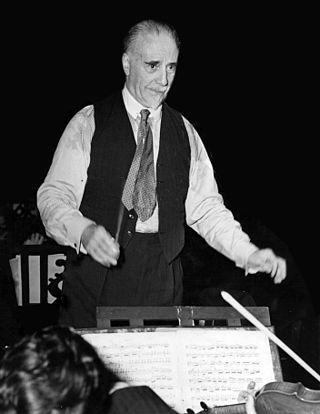
Sir Thomas Beecham, 2nd Baronet, CH was an English conductor and impresario best known for his association with the London Philharmonic and the Royal Philharmonic orchestras. He was also closely associated with the Liverpool Philharmonic and Hallé orchestras. From the early 20th century until his death, Beecham was a major influence on the musical life of Britain and, according to the BBC, was Britain's first international conductor.

Dame Ethel Mary Smyth was an English composer and a member of the women's suffrage movement. Her compositions include songs, works for piano, chamber music, orchestral works, choral works and operas.
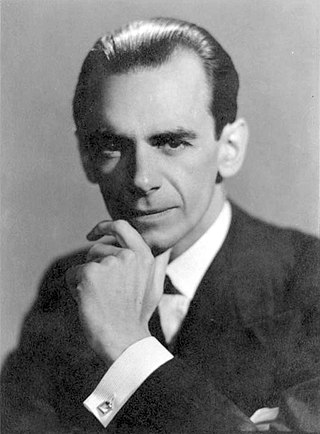
Sir Harold Malcolm Watts Sargent was an English conductor, organist and composer widely regarded as Britain's leading conductor of choral works. The musical ensembles with which he was associated included the Ballets Russes, the Huddersfield Choral Society, the Royal Choral Society, the D'Oyly Carte Opera Company, and the London Philharmonic, Hallé, Liverpool Philharmonic, BBC Symphony and Royal Philharmonic orchestras. Sargent was held in high esteem by choirs and instrumental soloists, but because of his high standards and a statement that he made in a 1936 interview disputing musicians' rights to tenure, his relationship with orchestral players was often uneasy. Despite this, he was co-founder of the London Philharmonic, was the first conductor of the Liverpool Philharmonic as a full-time ensemble, and played an important part in saving the Royal Philharmonic Orchestra from disbandment in the 1960s.

The Nose, Op. 15,, is Dmitri Shostakovich's first opera, a satirical work completed in 1928 based on Nikolai Gogol's 1836 story of the same name.
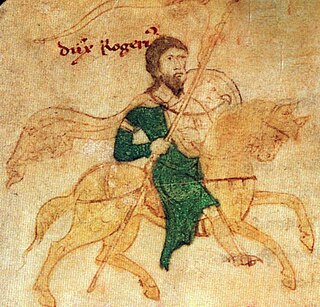
King Roger is an opera in three acts by Karol Szymanowski to a Polish libretto by the composer himself and Jarosław Iwaszkiewicz, the composer's cousin. The score was finished in 1924. The opera received its world premiere on 19 June 1926 at the Grand Theatre, Warsaw, with the cast including the composer's sister, the soprano Stanisława Korwin-Szymanowska, as Roxana.
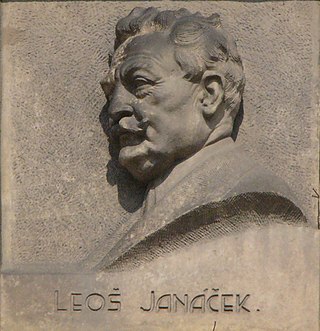
Destiny is an opera in three acts by Leoš Janáček to a Czech libretto by the composer and Fedora Bartošová. Janáček began the work in 1903 and completed it in 1907. The inspiration for the opera came from a visit by Janáček in the summer of 1903, after the death of his daughter Olga, to the spa at Luhačovice. There, Janáček met Kamila Urválková, who had been the subject of an opera by Ludvík Čelanský, Kamila, where she felt that Čelanský had falsely depicted her personality. After learning that Janáček was a composer, Urválková persuaded Janáček to write another opera to counteract Čelanský's portrait of her.

Karl Rankl was a British conductor and composer who was of Austrian birth. A pupil of the composers Schoenberg and Webern, he conducted at opera houses in Austria, Germany and Czechoslovakia until fleeing from the Nazis and taking refuge in England in 1939.
Henry Warwick Braithwaite was a New Zealand-born orchestral conductor. He worked mostly in Great Britain and was especially known for his work in opera.
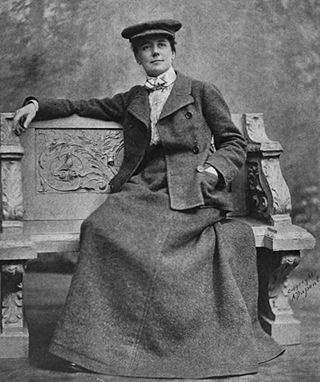
The Boatswain's Mate is an opera in one act written by British composer and suffragette Ethel Smyth in 1913–14 set to her own libretto, which was based on a story of the same name by W. W. Jacobs.

Frederic William Austin was an English baritone singer, a musical teacher and composer in the period 1905–30. He is best remembered for his restoration and production of The Beggar's Opera by John Gay and Johann Christoph Pepusch, its sequel, Polly, in 1920–23, and for his popularization of the melody of the carol The Twelve Days of Christmas. Austin was the older brother of the composer Ernest Austin (1874–1947).

Cavalleria rusticana is an opera in one act by Pietro Mascagni to an Italian libretto by Giovanni Targioni-Tozzetti and Guido Menasci, adapted from an 1880 short story of the same name and subsequent play by Giovanni Verga. Considered one of the classic verismo operas, it premiered on 17 May 1890 at the Teatro Costanzi in Rome. Since 1893, it has often been performed in a so-called Cav/Pag double-bill with Pagliacci by Ruggero Leoncavallo.
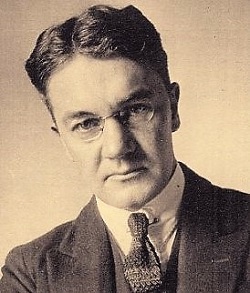
Julius Allan Greenway Harrison was an English composer and conductor who was particularly known for his interpretation of operatic works. Born in Lower Mitton, Stourport in Worcestershire, by the age of 16 he was already an established musician. His career included a directorship of opera at the Royal Academy of Music where he was a professor of composition, a position as répétiteur at the Royal Opera House, Covent Garden, conductor for the British National Opera Company, military service as an officer in the Royal Flying Corps, and founder member and vice-president of the Elgar Society.
Odaline de la Martinez is a Cuban-American composer and conductor, currently residing in the UK. She is the artistic director of Lontano, a London-based contemporary music ensemble which she co-founded in 1976 with New Zealander flautist Ingrid Culliford, and was the first woman to conduct at the BBC Promenade Concerts in 1984. As well as frequent appearances as a guest conductor with leading orchestras throughout Great Britain, including all the BBC orchestras, she has conducted several leading ensembles around the world, including the Ensemble 2e2m in Paris; the New Zealand Symphony Orchestra; the Australian Youth Orchestra; the OFUNAM and the Camerata of the Americas in Mexico; and the Vancouver Chamber Orchestra. She is also known as a broadcaster for BBC Radio and Television and has recorded extensively for several labels.
The Mass in D by Ethel Smyth is a setting of the mass ordinary for vocal soloists, chorus and orchestra.

Fête Galante is an opera in one act composed by Ethel Smyth to an English-language libretto by Smyth and Edward Shanks based on Maurice Baring's 1909 short story of the same name. It is a tale of late night fête galante involving aristocrats and a commedia dell'arte troupe where jealousy, desire, and multiple masquerades end in the death of one of the characters. Described by the composer as a "Dance-dream", the opera premiered on 4 June 1923 at the Birmingham Repertory Theatre.

Entente Cordiale is a comic opera in one act by Ethel Smyth with an English-language libretto by Smyth, who describes the work as "a post-war comedy in one act ". It was first performed by students at the Royal College of Music in London on 22 July 1925.
Sasha Cooke is an American mezzo-soprano.
Irmelin is an opera in three acts with music by Frederick Delius. Composed between 1890 and 1892, it was the first opera which he finished. But it wasn't premiered until 1953, nearly twenty years after his death. The libretto was by the composer, and weaves together two mythical stories. Philip Heseltine described the opera as a "fairy-tale of quite ordinary kind" and "its form dramatically rather below the level of the conventional operatic text. Though the music was much praised by Grieg and Messager... its performance was never seriously contemplated by the composer". Delius had however assimilated Wagnerian influence in his music, with use of key motifs and a sense of flow through the three acts.














